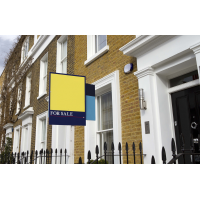
The average house price in May was £204,368, up 0.2% on the April average of £202,436, according to the latest Nationwide House Price Index, as economists claim true activity is masked by the Stamp Duty hike.
In the year to May, prices rose 4.7%, compared with 4.9% in the year to April.
Nationwide building society’s chief economist Robert Gardner said the annual pace of growth remained in the “fairly narrow range, between 3% and 5%” over the last 12 months.
“In the near term, it’s going to be difficult to gauge the underlying strength of activity in the housing market due to the volatility generated by the Stamp Duty changes which took effect from 1 April, said Gardner.
“Indeed, the number of residential property transactions surged to an all-time high in March, some 11% higher than the pre-crisis peak as buyers of second homes sought to avoid the additional tax liabilities.”
He said cash purchases accounted for a significant proportion of the increase in activity but that it is not possible to determine whether or not these were purchased by landlords. However, he added that buy-to-let purchases were a major driver in the increase of residential property transactions in March, as purchasers brought forward transactions to beat the Stamp Duty start date.
Andrew McPhillips, chief economist at Yorkshire Building Society, said the slight slowdown in house price growth in recent months is likely to have been driven by both the Stamp Duty hike and the uncertainty around the EU referendum.
“Similar events in the past such as the 2015 general election prompted the same preliminary dip in activity that we’re currently seeing, followed by swift normalisation in the following months,” he said.
“By comparison, although the speed at which the property and mortgage markets normalise following the EU referendum may be influenced by the outcome of the vote, house prices and demand for mortgages are likely to continue to grow in the long-term as a result of the lack of supply.”
He also highlighted the need to build more homes to increase affordability and urged the government to look at ways to achieve this.
The sentiment was echoed by Jeremy Duncombe, director of Legal & General Mortgage Club, who said that any increase in house prices is “far from good news”.
“Something needs to change. Demand is still dwarfing supply, and this imbalance is the true underlying issue that must be tackled,” he said.















